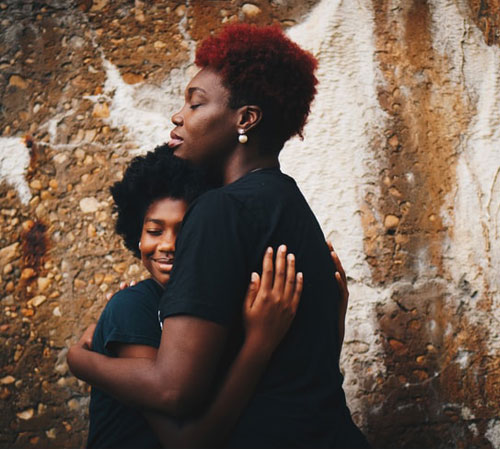 Having the body safety talk with your kid can be weird and you would much rather skip it if you can.
Having the body safety talk with your kid can be weird and you would much rather skip it if you can.
I know; I was like you too.
Are you looking for the best ways to have the sex talk with your kids of different ages? Are you wondering what to tell them, since we cannot run away from it?
I’ve got answers for you. You can consider it my gift to you and yours.
How To Have The Body Safety Talk With Your 2-5-year-olds
No one is too young for sex education.
In fact, the process of talking about sex can very well start before they’re verbal.
That means incorporating the proper names for genitals into everyday activities like bath time.
While it is okay to use syrupy names, but Penis, Vagina, Bum and Nipples are all terms that every child no matter how young should know, if not for anything, so they can communicate when they have health issues or are being molested at any point.
For children of the age grade, a major focus should be learning about boundaries and what is and isn’t appropriate when it comes to touching or being touched by other people.
While you can skip the explicit details, now is when you should be telling your child that others should never ask to or try to touch their genitals.
It’s important to make your kids understand that they can tell you about inappropriate actions at any time, even if they’ve previously kept it a secret.
Kids of this age can be very curious about each other’s bodies.
It’s important to acknowledge this inquisitiveness and use it as an entry point to discuss your family’s rules and values.
Talk to them explicitly about when it’s appropriate to be naked and try not to lie when answering some concerns they might have.
How To Have The Talk With Your 6-8-year-olds
Talking about sex to kids of this age bracket can go hand-in-hand with another key topic: puberty.
It very well could be a simple discussion about how the human body changes as we grow, and probably compare photos of when they were little with what they look like now.
You don’t want them to get the wrong ideas off the internet or people who do not have their best interests at heart.
Female children can expect to start puberty between 9 and 11.
For them, a key marker that this change is underway is the development of breast buds, which usually starts before age 10.
Menstruation follows a few years later, usually around age 12 (though earlier than this isn’t uncommon).
While our boys tend to start puberty closer to 10, with pubic hair growth being the first noticeable sign.
You could also share a good book with your child that can walk you both through puberty’s more technical aspects, such as the differences between testosterone and estrogen, and why and how our bodies undergo changes in hair, genitals, voices, etc.
This is also not an outrageous time to talk about masturbation, since by age eight most children have begun to explore their bodies.
Talk With A 9-12-year-old
This age is full of emotional and social changes, and girls in particular may struggle with issues associated with body changes.
You are encouraged to check in with your kids of this age a bit more often and ask about how they’re feeling and what thoughts are going on in their heads.
For the kids here, it’s really just emphasising over and over again that it’s normal when it comes to how their bodies are changing and reminding them of the risks of being too curious.
Since this age group generally has more freedom online, it’s a good idea to periodically chat about internet safety and to build on your already established digital rules and values.
For example, talk frankly about how sharing nude or sexually explicit photos of themselves or their peers may be unsafe.
Ask your child “What do you think it means to be respectful on social media?”
And when high-profile stories on sexting or online bullying are in the news, use them as jumping-off points to ask your child how they would handle similar situations.
How To Have The Sex Talk With Your Teenager
Talking with your kids about sex and sexuality early in life really pays off once they’ve hit their teens.
If you’ve established yourself as open to discussing those topics, and they are most likely going to feel more comfortable talking to you and asking you questions.
But if you’ve been quiet on the subject of sex up till now, it is recommended that you have a sit-down session with your teen, apologising for keeping away for so long, and then emphasising that you’re changing your ways.
Even just hearing that can go a long way in reassuring him/her.
While you generally want to minimise the lectures, teens need real talk about sexual choices and safer sex.
I know, I know, this idea is a bit intrepid, but extremely crucial, as research shows that teens make better choices when they know the risks.
You can even go a notch further to highlight different types of birth control and explain the basics of how they work.
It’s also important to frequently discuss consent in sexual relationships.
Frequent Conversation Is Crucial
You need to be thinking about how to help them protect themselves against pressure and dating violence.
Hence, frequent conversations around healthy relationships are crucial.
If your child is reluctant to talk about herself, you talk about ‘friends at school’ instead or even share relationship stories from your past.
Have You Read: How To Effectively Keep Kids Busy While You Work From Home
Ultimately, when it comes to teens, you want to empower your child to be able to evaluate risks and make good decisions.
Helping kids understand that they have a gut, an inner voice, and they can and should listen to it, is a big part of what sex education is about.
And by discussing the right topics at the right ages, you’re setting your child up to do just that, all of which in no way means you are asking them to walk out your door and start having sex.
Bottom Line
The business of sex education is one of “the earlier, the better.
Therefore, closer to age two, you should start talking to your kids about their bodies;when and where it’s appropriate to explore it.
If your toddler has the tendency to touch his genitals for instance, which is perfectly normal by the way, use it as an opportunity to explain how that’s something we do at appropriate times in the privacy of our bedrooms.
You want to be really gentle when discussing this stuff, as you don’t want your child to feel like he’s doing something shameful or start withholding information that could be labeled uncomfortable from you.
As early as possible, the anatomically correct terms for the genitals might sound daunting, but be casual and treat those terms as you would the word “arm” or “ankle.
At the end of the day, you would have done you and them a grand favour.
Find more on parenting here.



